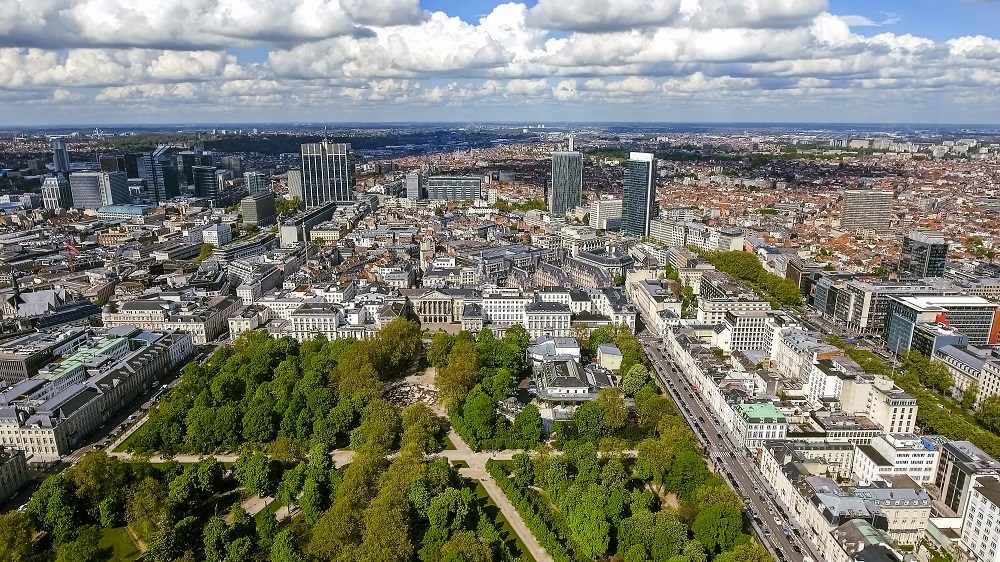In January, I wrote about the potential revival of Brusselization as a consequence of a series of development plans being considered by the Brussels Region.
I was specifically concerned about plans for numerous very tall, tower buildings to be dotted all over the city; but this is only one of several problems highlighted by numerous residents from all parts of the city who will be affected by one or another of these 14 development plans.
Shortly after my article was published, articles by several members of Parliament in city newspapers echoed criticisms of Brusselization, specifically in reference to the tower buildings. I was sufficiently intrigued to attend one parliamentary question-and-answer session, during which the question about tower buildings was posed but then ignored by Rudi Vervoort, the Socialist Minister-President of the Brussels-Capital Region. My disenchantment increased.
Although I was specifically concerned about the Mediapark PAD (the abbreviation stands for the French title of these development plans, Plan d’Amenagement Directeur) , I soon discovered that local neighbourhood committees had formed throughout Brussels in reaction to the 14 different PADs proposed for each of their neighbourhoods. It occurred to me that they would do well to group together; and indeed several committees had already arranged a meeting early in February that brought together over 30 representatives from all of the local committees. This meeting resulted in the formation of a collective entitled BASlesPADS (Down with PADs).
Then, of course, the pandemic invaded the city, partially interrupting the Region’s calendar and adding confusion and uncertainty to already angry local residents.
Objections to the PADs are wide-ranging, and include criticism of the justifications offered to some of the proposals – for example, the use of outdated and exaggerated demographic data to justify extensive building proposals; objections about the lack of concern for the environment and ecology, climate change, and the need to maintain biodiversity; and the suspicion that many of the proposals are driven by construction companies’ financial objectives rather than the real needs of the city and its inhabitants.
The BASlesPADS Collective resumed its conversations and contestations as soon as possible following the outbreak of the pandemic; and while its calendar was affected, the Region also continued in its same direction. Currently, six out of the 14 development PADs are about to go for a second reading in Parliament. The PADs about to be debated include the USquare PAD concerning the former barracks in Ixelles; the Mediapark proposal in Schaerbeek; proposals for the area around the Gare du l’Ouest in Molenbeek-St-Jean; the Porte de Ninove (Brussels and Molenbeek-St-Jean); the Friche Josaphat (Schaerbeek and Evere); and the Heyvaert PAD which concerns Anderlecht, Brussels and Molenbeek-St-Jean.
In reaction to the announcement of these second readings, the BASlesPADS Collective recently issued a statement in which it asserts that “all the PAD projects should be the subject of a moratorium, for the time needed to make the PAD tool more democratic, and to integrate correctly into the PADs a response to the challenges now posed by social, climate, health, and financial crises and the current ecological transition now world-wide.”
The Collective is also calling for profound revisions of the PADS, integrating among other things many recommendations by the government’s own CRD (Regional Development Commission) but which the government has so far chosen to ignore. “No PAD should be presented to the government for a second reading so long as it has not been submitted to a new public enquiry, and to a new consultation with the responsible authorities.”
Seven points in particular have been highlighted.
1. The political situation at the Brussels level has changed.
2. The current health and economic crises must now be added to the urgent questions of climate change and biodiversity.
3. The demographic boom can no longer serve as a pretext for excessive building programmes.
4. The PADs do not respond to current and future economic and social needs.
5. The tower buildings proposed in the PADs are not adapted to new challenges (durability, sustainability).
6. The PADs do not respect ecology and nature.
7. Inputs of the local citizens must be respected and projects with agreed, common goals need to be worked out.
This last point seems particularly critical to me. Any Belgium inhabitant coming here from another country or culture cannot help but be confused by the Belgian political system. The principle of coalition government was introduced as a way of respecting the diverse orientations of this small, but historically complex country, which include linguistic, geographic, political and religious differences. Belgium aims to be a democracy – giving voice to all who call for it – that also respects diversity.
However, this political arrangement has significant consequences. For example, Belgium has become famous for its tradition of political compromise. Some years ago the RTBF produced a documentary about this at times amusing facet of Belgian political life entitled “Belgique, Oui mais Non” (“Belgium, Yes but No”), still available on YouTube, and worth watching!
And over the years, the repeated wrangling following the Federal elections over which parties can agree to form a ruling coalition has demonstrated how the pitfalls of political activity all over the world – greed, social power, and so on – have not been eliminated by the Belgian system. As we have seen in recent years in larger world powers such as the USA and UK, democracy sometimes seems unobtainable.
The current debate about the PADs shows how those who believe in democracy, as challenging as it is, must still “stay alert” and speak up.


